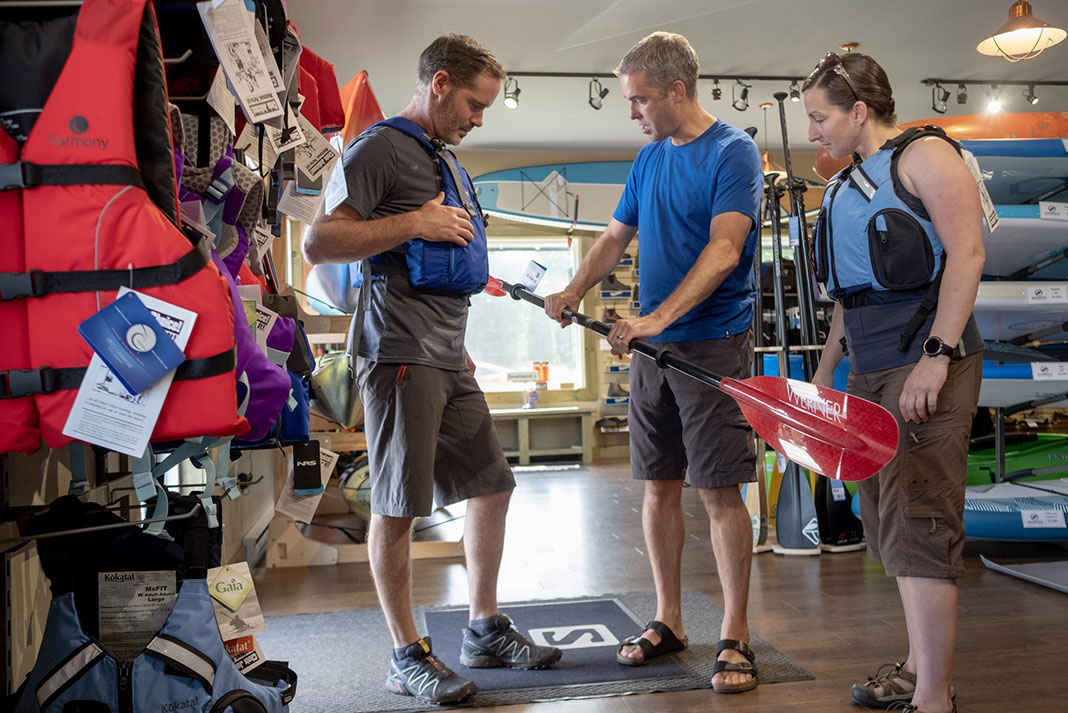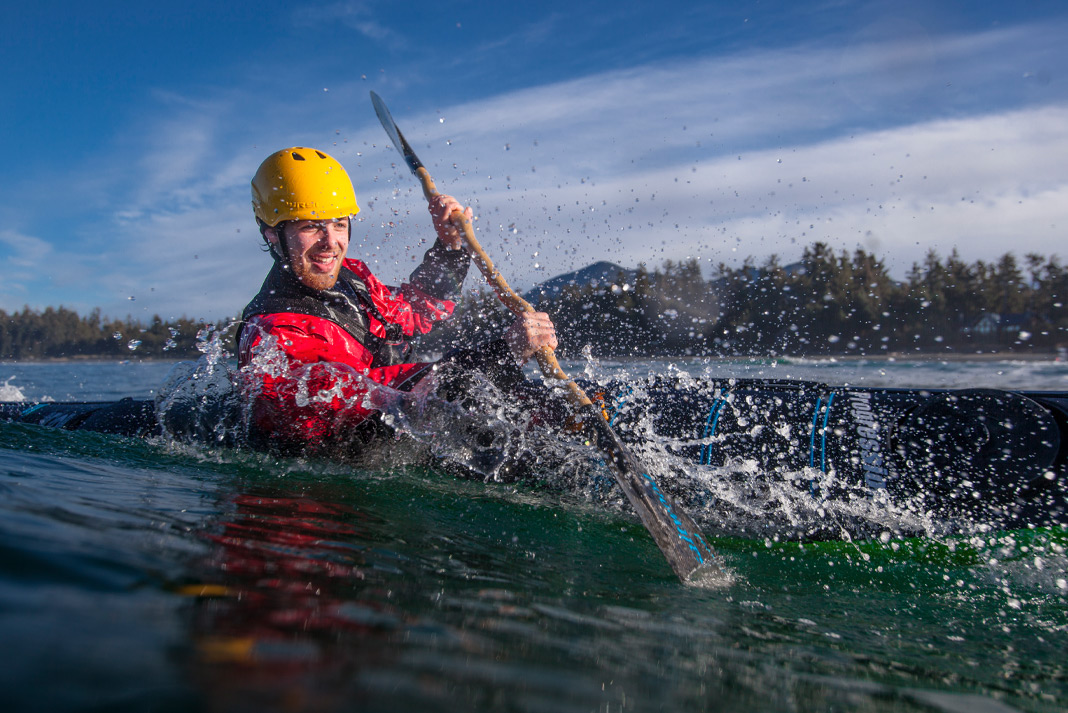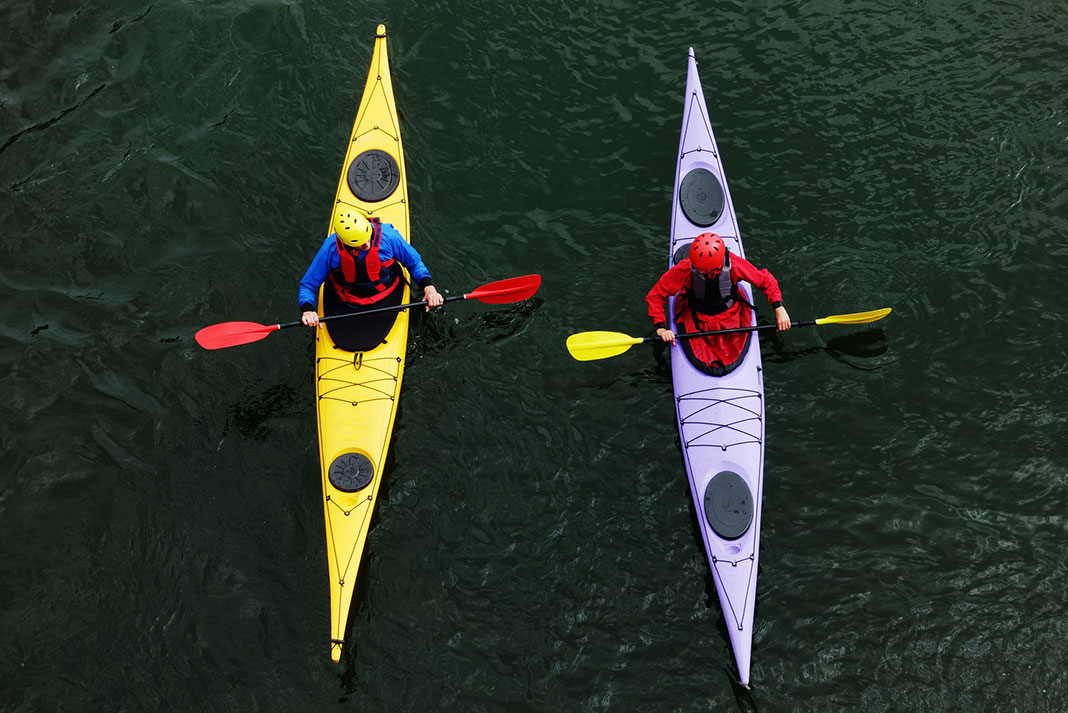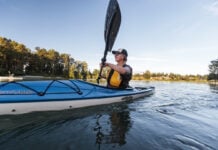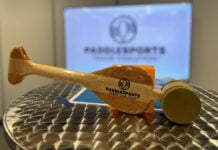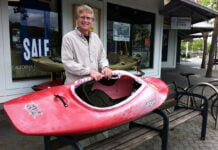There’s a mantra in sports that says you don’t become a champion overnight. The idea has gained a lot of press thanks to British cycling coach Dave Brailsford, who coined the term marginal gains for the process of incremental improvement he used to guide the British cycling team to 16 gold medals over two Olympics and seven Tour de France wins in eight years.
Brailsford famously had his team’s shop floor painted white so no errant speck of dust would find its way into an athlete’s bike. While some critics have suggested his famous attention to detail paid even bigger dividends in the field of pharmaceutical enhancement, the point is Brailsford didn’t try to grab the golden ring with one all-in, high-stakes gamble.
It’s the same in retail.
The difference between red ink and black often comes down to the margins. And nothing returns margins like accessories, says YakAttack Marketing Manager John Hipsher.
“A kayak has maybe 30 points of margin after—or sometimes even before—shipping costs,” Hipsher says. “I offer retailers a base margin of 40. That’s even before any preseason discounts, so you can get most accessories with free shipping and closer to 50 percent margin.”
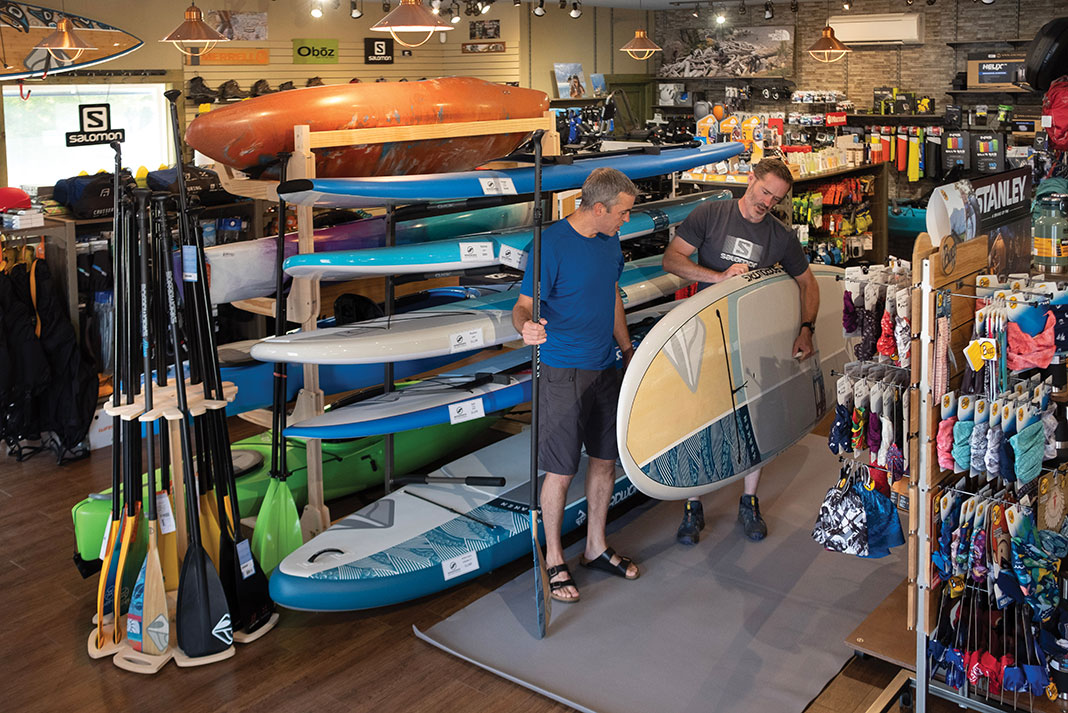
Don’t Sell Naked
When Sawyer Paddles and Oars opened its retail store, Member/Manager Zac Kauffman recognized the company’s signature products are, in essence, high-end accessories. Sawyer Station does a brisk business in rafts, kayaks and standup paddleboards, as well as the paddles and oars the 40-year-old parent company makes just up the road. But those big ticket items are only the start, Kauffman says.
“We pretty much approach our whole concept as, ’Let’s get something out the door that we can accessorize,’” he says. “If we’re going to sell someone a river SUP paddle, let’s also sell them a board and everything else to go with it: The leash, the life jacket, the helmet, the shoes. We don’t sell anything naked.”
Leverage Your Knowledge
Accessory sales offer an edge to specialty stores whose staff can articulate the need for particular items. If a shop caters to a variety of paddlesports customers, it can try to bring in staff with expertise in each area.
“Back in my retail days, I’d hear my climbing guy or my trail running guy try to sell an East Tennessee bubba fisherman a Jackson Big Rig, and it just didn’t work,” Hipsher says. “They don’t speak the same language.”
Equally important is keeping the door open to all customers even if they make their big purchase elsewhere, says John Warta, owner of Paddler’s Cove in Washington, New Jersey. That’s true even if the customer made a bad purchase, such as the plus-sized gent who stopped by Warta’s store after buying a box store kayak that wasn’t even rated to hold his weight.
“I don’t ever say, ‘Hey, you got the wrong one.’ Instead, I try to show them the differences and see if I can turn on a light bulb,” Warta says. “He may go back and pick up the next bigger kayak, and that’s okay. We’ll get some business from him later, or we’ll get his neighbor’s business.”
Some Assembly Required
Hipsher is the first to say kayak fishing is a different retail environment. “I wouldn’t say touring kayakers and canoeists aren’t gear minded, but fishing guys are on a whole different level,” he says. “They’re total gear whores.”
Modern fishing kayaks are frequently equipped with sophisticated fish finding electronics. Still, not everyone is comfortable running electrical wires in their kayaks, let alone grabbing a drill and augering holes in the deck. That’s where installation has become both a source of revenue and a powerful sales tool, Hipsher says.
At the Dugout Bait and Tackle in Marietta, Georgia, the average out-the-door cost for a fully equipped Hobie or Jackson is nearly double the base kayak price, Hipsher says.
While touring boats present less opportunity for dealer accessory sales and wrenching, there is still a market for kayak rudder installations, canoe spraydecks and other custom modifications better performed by experts.
Know Where to Stop
The term accessory is as broad as you want it to be. A life jacket is a paddling accessory, albeit a mandatory one. So is a roof rack. Sunglasses? Sure, if you say so. It all comes down to floor space.
“We don’t have a huge sales floor, so we basically draw the line at clothing,” says Kauffman, noting plenty of nearby stores specialize in outdoor apparel. “We identify as hard goods and hard good accessories—all the essentials you need to have with you for paddling and safety.”
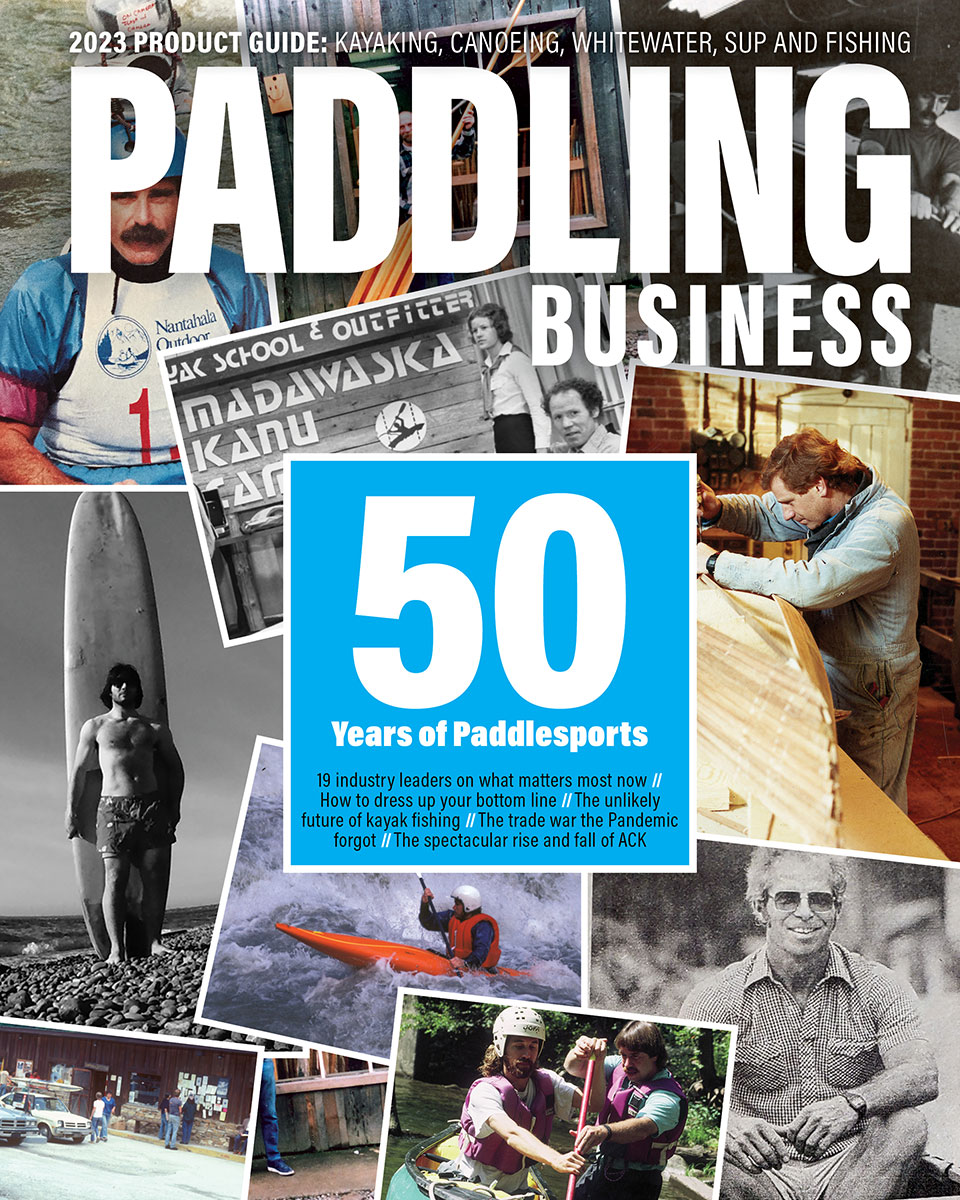
Accessories give the edge to specialty stores with sales staff who know the sport. | Feature photo: Mark Hemmings



